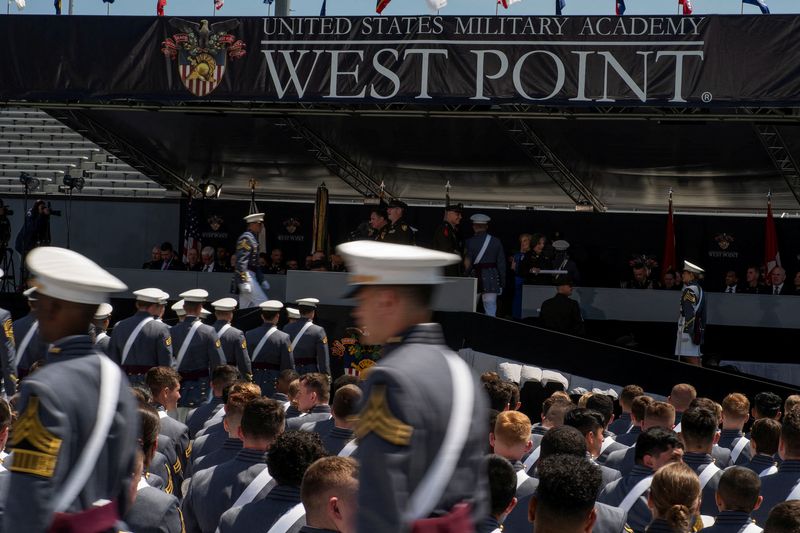By Nate Raymond
(Reuters) - The Biden administration on Wednesday urged a federal judge to reject a legal challenge to the U.S. Military Academy at West Point's consideration of race in admissions, saying that Army diversity was "integral to ensuring national security."
The U.S. Department of Justice in a brief argued the military academy's affirmative-action policies remain valid even after the U.S. Supreme Court's June decision striking down race-conscious admissions policies long used by colleges to boost enrollment of Black, Hispanic and other minority students.
The conservative majority Supreme Court's ruling came in response to lawsuits by the same group now suing over West Point's policies in federal court in White Plains, New York. The group, Students for Fair Admissions, was founded by affirmative action opponent Edward Blum.
Blum's group in a lawsuit filed in September alleged the academy's admissions practices discriminated against white applicants and violated the principle of equal protection in the U.S. Constitution's Fifth Amendment.
But the Justice Department said SFFA had no legal standing to sue over the policies and ignored "critical differences" between civilian universities such as those in the Supreme Court case and military ones like West Point, which use race in a "limited fashion to foster diversity in the Army officer corps."
It said top U.S. military leaders "have repeatedly concluded that a more diverse officer corps makes a more effective force: more lethal, more likely to attract and retain top talent, and more legitimate in the eyes of the nation and the world."
Blum did not respond immediately to a request for comment.
The brief was filed ahead of arguments slated for Dec. 21 on SFFA's request for a preliminary injunction before U.S. District Judge Philip Halpern, an appointee of Republican former President Donald Trump.
The lawsuit, along with a similar one Blum's group filed against the U.S. Naval Academy, seeks to end an exemption tucked inside the Supreme Court ruling that allowed military academies to continue considering race as a factor in admitting cadets.
The Supreme Court's ruling invalidating race-conscious admissions policies used by Harvard University and the University of North Carolina did not address race in admissions at military academies, which Chief Justice John Roberts said had "potentially distinct interests."
The Justice Department in Wednesday's brief said the prestigious West Point was a "vital pipeline to the officer corps" and that its race-conscious admissions practices helped the Army achieve its "mission critical" goal of having officers as diverse as its enlisted military personnel.

Although Black people make up 20.2% of the Army's active duty enlisted personnel, only 11% are officers, the Justice Department said. Hispanic people constitute 18% of active personnel but only 9% of officers, the department said.
White people by contrast constitute 51.7% of the Army active duty enlisted corps and 68% of its officers, the Justice Department said.